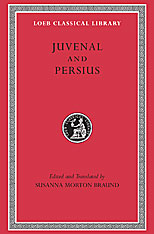
Mordant verse satire.
The bite and wit of two of antiquity’s best satirists are captured in this Loeb Classical Library edition.
Persius (AD 34–62) and Juvenal (writing about sixty years later) were heirs to the style of Latin verse satire developed by Lucilius and Horace, a tradition mined in Susanna Braund’s introduction and notes. Her notes also give guidance to the literary and historical allusions that pepper Persius’ and Juvenal’s satirical poems—which were clearly aimed at a sophisticated urban audience. Both poets adopt the mask of an angry man, and sharp criticism of the society in which they live is combined with flashes of sardonic humor in their satires. Whether targeting common and uncommon vices, the foolishness of prayers, the abuse of power by emperors and the Roman elite, the folly and depravity of Roman wives, or decadence, materialism, and corruption, their tone is generally one of righteous indignation.
Juvenal and Persius are seminal as well as stellar figures in the history of satirical writing. Juvenal especially had a lasting influence on English writers of the Renaissance and succeeding centuries.
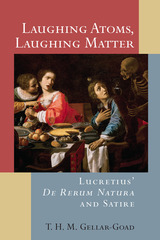
Gellar-Goad aims to track De Rerum Natura along two paths of satire: first, the broad boulevard of satiric literature from the beginnings of Greek poetry to the plays, essays, and broadcast media of the modern world; and second, the narrower lane of Roman verse satire, satura, beginning with early authors Ennius and Lucilius and closing with Flavian poet Juvenal. Lucilius is revealed as a major, yet overlooked, influence on Lucretius.
By examining how Lucretius’ poem employs the tools of satire, we gain a richer understanding of how it interacts with its purported philosophical program.
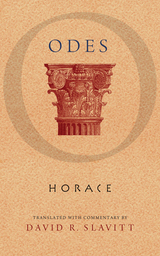
This edition is also notable for Slavitt’s extensive notes and commentary about the art of translation. He presents the problems he encountered in making the translation, discussing possible solutions and the choices he made among them. The effect of the notes is to bring the reader even closer to the original Latin and to understand better how to gauge the distance between the two languages.
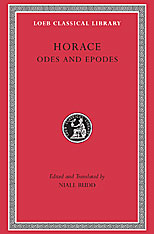
Monumental verse.
The poetry of Horace (born 65 BC) is richly varied, its focus moving between public and private concerns, urban and rural settings, Stoic and Epicurean thought. The Loeb Classical Library edition of the great Roman poet’s Odes and Epodes boasts a faithful and fluid translation and reflects current scholarship.
Horace took pride in being the first Roman to write a body of lyric poetry. For models he turned to Greek lyric, especially to the poetry of Alcaeus, Sappho, and Pindar; but his poems are set in a Roman context. His four books of Odes cover a wide range of moods and topics. Some are public poems, upholding the traditional values of courage, loyalty, and piety; and there are hymns to the gods. But most of the Odes are on private themes: chiding or advising friends; speaking about love and amorous situations, often amusingly. Horace’s seventeen Epodes, which he called iambi, were also an innovation for Roman literature. Like the Odes they were inspired by a Greek model: the seventh-century iambic poetry of Archilochus. Love and political concerns are frequent themes; the tone is only occasionally aggressive. “In his language he is triumphantly adventurous,” Quintilian said of Horace; Niall Rudd’s translation reflects his different voices.

In this concise analysis, written with elegant wit, the greatest living textual critic of Latin authors offers new insight into the poetry of Horace.
Horace is best known for his four books of Odes, cherished for their lyric grace. His amiable persona is displayed more intimately in the moralizing verses of the Satires and Epistles. In a reading of all the poetry, but focusing especially on problematic areas, Shackleton Bailey examines Horace's art of self-presentation. A variety of themes are elucidated, from the poet's relations with his patron to Roman sexual attitudes. Close scrutiny is given to about thirty passages which, he argues, have been misread. An appended essay on a notable predecessor, the textual scholar Richard Bentley, is especially revealing on the art of classical scholarship.
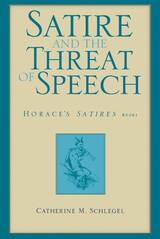
READERS
Browse our collection.
PUBLISHERS
See BiblioVault's publisher services.
STUDENT SERVICES
Files for college accessibility offices.
UChicago Accessibility Resources
home | accessibility | search | about | contact us
BiblioVault ® 2001 - 2025
The University of Chicago Press









